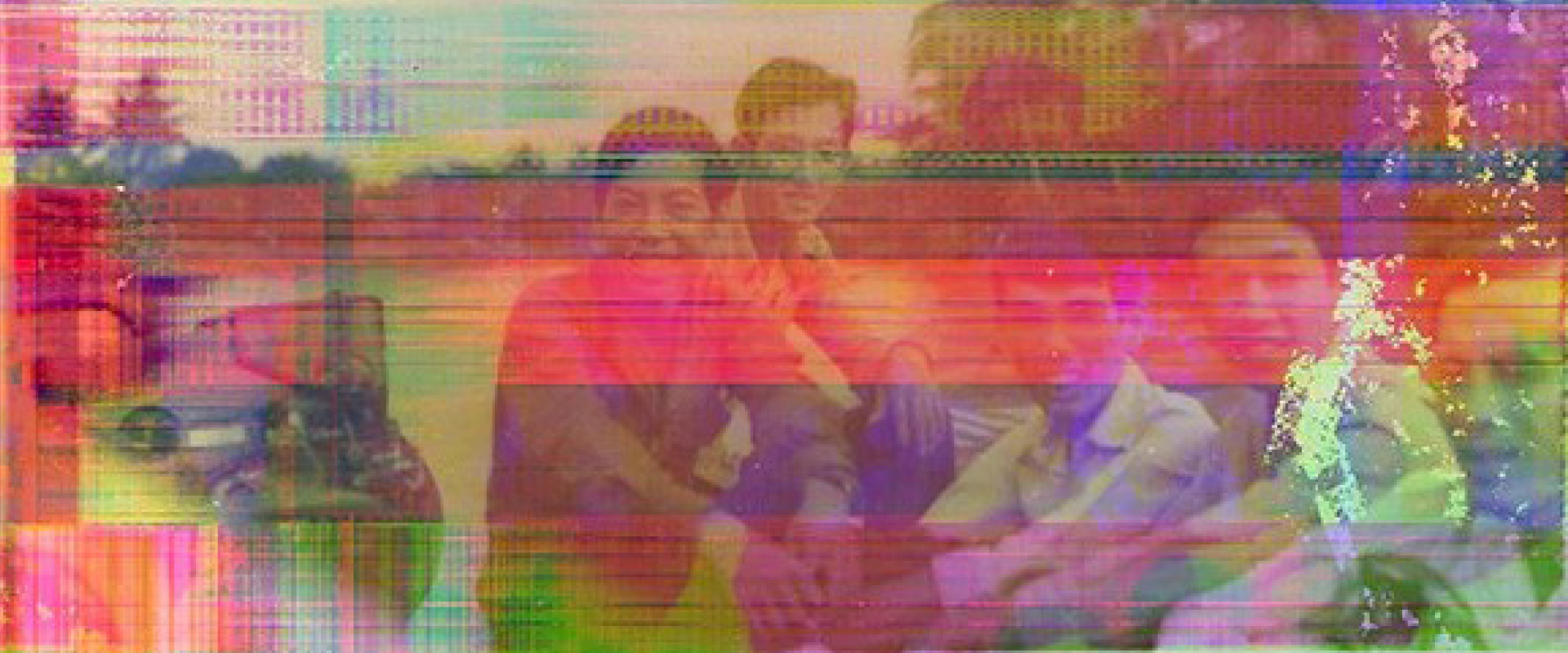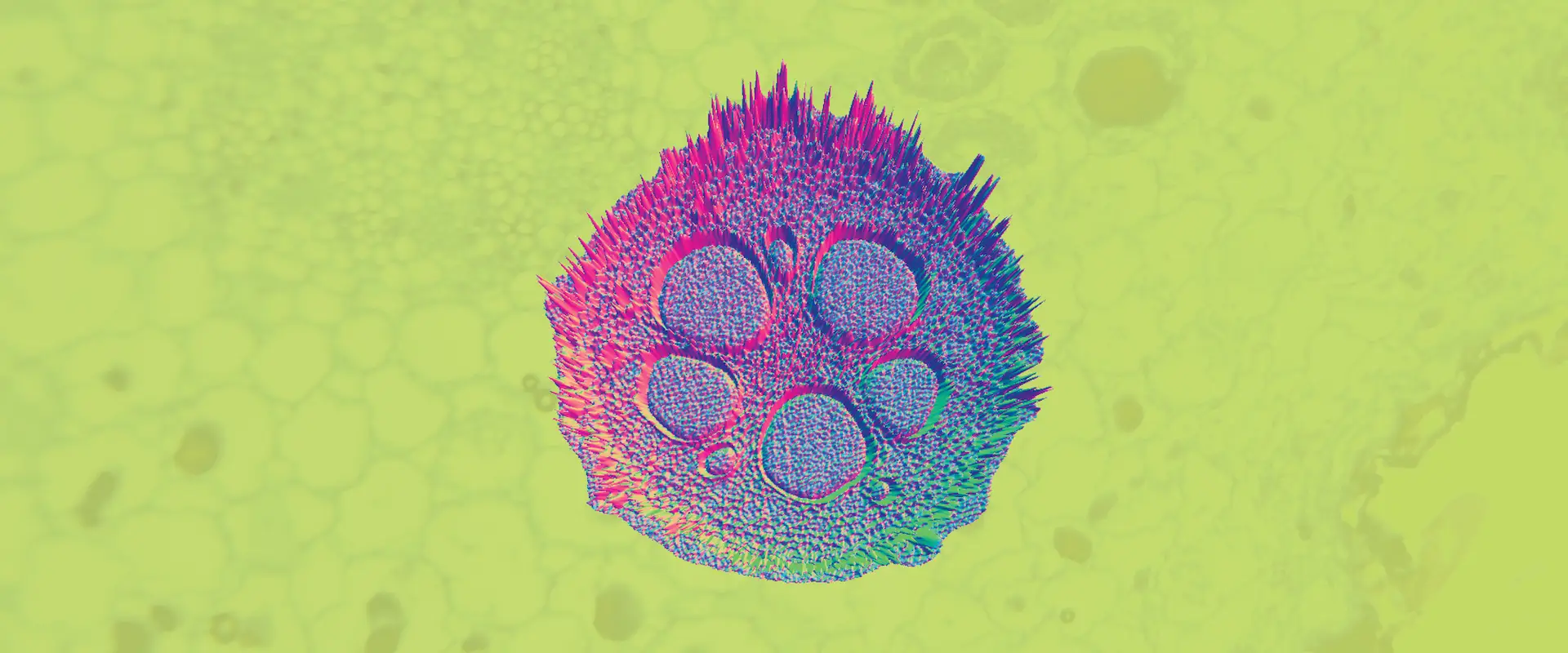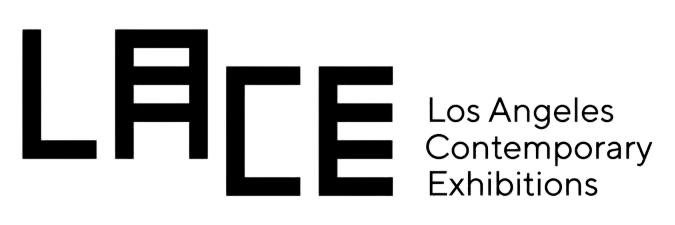Curated by Selene Preciado
This exhibition is made possible, in part, by support from the Teiger Foundation.
Photo credit: Ann Le, What we lost in the Ocean, 2022 (video still). Courtesy of the artist.
- Save the Date:
Sat, Feb 21 | Performance Lectures
Saturday, February 21, 2026, 2–5 PM | RSVP here.
Experience the work by the fifteen artists in the exhibition, and witness performance lectures by Artemisa Clark and Prima Jalichandra-Sakuntabhai. Light refreshments will be provided. This is the last event in conjunction with the exhibition.
About the Exhibition
A Tender Excavation approaches research-based artistic practices through propositions of alternative histories, bringing together a group of artists who work with historical and familial photographic archives as a point of departure to construct new narratives and elicit transformation. Artists featured in the exhibition include Zeynep Abes, Susu Attar, Jamil Baldwin, Mely Barragán, Artemisa Clark, Arleene Correa Valencia, Mercedes Dorame, Prima Jalichandra-Sakuntabhai, Leah King, Tarrah Krajnak, Heesoo Kwon, Ann Le, Arlene Mejorado, Star Montana, and Camille Wong.
Read more
The title of the exhibition borrows a description of Arlene Mejorado’s practice as “an act of care, via a tender excavation of objects, anecdotes, and memories simultaneously.” A Tender Excavation centers identities that have been systematically excluded from mainstream narratives and representations of not only American art but of representing an “American” identity. A Tender Excavation features mainly US-based artists who represent Afro-Latinx, African American, Chinese American, Gabrielino/Tongva Nation, Korean American, Iraqi American, Latinx, Mexican, Mexican American, Peruvian American, Thai, Turkish American, and Vietnamese American intersecting identities, among others. For these artists, whose backgrounds are connected to diasporic experiences of discrimination, displacement, erasure, exclusion, slavery, and systemic violence, the practice of piecing together history through memory and counter-narrative is an act of transformation and healing. The works selected for the exhibition depart from personal, familial, or historical photographic archives which ultimately are recontextualized through installation, collage, painting, film, video, sculpture, or mixed media, reimagining and reconnecting lost fragments to speak about personal and collective resilience, constructing new possibilities for an interconnected futurity.
About the Artists
Zeynep Abes
Zeynep Abes is an artist, researcher and educator from Istanbul, Turkey. She studied film and interactive media at Emerson College, later getting her start at LACMA’s Art+Tech lab. She then worked at the Sundance Film Festival’s New Frontier Exhibitions and is a graduate of UCLA’s Design Media Arts MFA program. She is currently a Ph.D. candidate in the Media Arts and Practice program at USC’s School of Cinematic Arts. She primarily works with archival media, 3D scanning technologies and immersive media. Her subjects revolve around identity, history, and loss of memory. She is in pursuit of exploring the role artists play in preserving memories to navigate the struggle and alienation that arise from changing social environments and shifting identities. Her work has been featured in notable festivals and conferences like Ars Electronica, Siggraph, ISEA, IEEE and the LA Art Show.
Susu Attar
Susu Attar is a multimedia artist rooted in painting and in her experience as an Iraqi Angeleno. Through her wide-ranging and holistic approach, Susu examines existing frameworks within both everyday life and political movements and creates new contexts that center the notion of art as a means of transformation and a space of interconnection. Susu’s work aims at creating an ecosystem for expansive storytelling. Her studio practice is inspired by makerspace labs and consists of individual and collaborative art making, immersive experiences, community engagement, and work with educators. Repeated themes across all work include communal imagination, worldbuilding, archives, placemaking, and shared space.
Jamil Baldwin
Jamil Baldwin (b. 1988) was born in Lancaster, CA and raised in and across the Inland Empire and Los Angeles. Baldwin’s work explores the ability of the photographic document to reconstitute the histories of images and material into value systems of care. Images of either his geography, neighbors, or family are housed within or made into objects that reward curiosity and patience. They aim to highlight practices of connection with respect to locales and communities. He received his BS and BA from The Wharton School of Business at University of Pennsylvania. He is currently pursuing his MFA in visual arts from University of California, San Diego. His images have been exhibited at the Sculpture Center, PioneerWorks, Band of Vices, Belfast Photo Festival, Lagos Photo Festival, and included in the following publications: New York Times, Aperture, Matte Editions, JRNL, and Callaloo. His work has also been acquired by the Kinsey Collection.
Mely Barragán
Mely Barragán is a multidisciplinary contemporary artist born and living in Tijuana, where she studied Graphic Design with a specialty in Visual Arts at the Universidad Iberoamericana. Her aesthetic objectives have focused on exploring the role of identity and of women within the power schemes of society. Her work questions the existing visual formulas and addresses the consequences of human and gender relations; reflects on obsession, the absurd, the beautiful, the grotesque, nostalgia, time, the behavior of human relationships, etc. Play with words and compositions creating a fragmented atmosphere. Barragán has individual and group exhibitions in Mexico, the United States, China and several European countries, being awarded several times and having obtained various scholarships. She has carried out artistic residencies in Cleveland, Beijing, Moscow, Monterrey, Oaxaca, Chiapas, among others. She was co-director of TJINCHINA Project Space, which has carried out an interesting exchange of contemporary art between Tijuana and China. Her work is part of public and private collections such as the Museum of Contemporary Art San Diego (MCASD), the Tijuana Cultural Center (CECUT), Stanford University Libraries Special Collections, Elias Fontes Collection, among others.
Artemisa Clark
Artemisa Clark is a multidisciplinary artist from Los Angeles. She received a MA in performance studies from Northwestern University in 2016 and a MFA in visual arts from the University of California, San Diego in 2015. She has exhibited and presented research in spaces such as The Cheech Marin Center for Chicano Art & Culture, MOCA, The Hammer, the Mexican Consulate, the Vincent Price Art Museum, and Commonwealth & Council, all in Los Angeles; California Institute of the Arts, Valencia, CA; Angels Gate Cultural Center, San Pedro, CA; the Hemispheric Institute of Performance and Politics Encuentro X, Santiago, Chile; and SOMA, Mexico City.
Arleene Correa Valencia
Arleene Correa Valencia (b. 1993, Michoacán, Mexico) is an inaugural recipient of the Bay Area Fellowship at Headlands Center for the Arts and received a regional Emmy award for her feature REPRESENT: Portraits of Napa Workers: Arleene Correa Valencia by KQED Arts. In 2023, Correa Valencia was named a Eureka Fellow by the Fleishhacker Foundation and a Finalist for the SECA Award through the San Francisco Museum of Modern Art. In Fall 2023, Correa Valencia’s work was featured in a two-person booth presentation (alongside work by Stephanie Syjuco) for Focus at The Armory Show, curated by Candice Hopkins, Executive Director and Chief Curator of Forge Project.
One of four children originally from Arteaga, Michoacán, Mexico, Correa Valencia is a beneficiary of DACA (Deferred Action Childhood Arrivals) and is on a path to becoming a naturalized citizen of the United States. The Correa Valencia family fled to the United States in 1997 and found home in California’s Napa Valley. Correa Valencia’s work is held in the permanent collections of the Cantor Arts Center at Stanford University; Crocker Art Museum; Utah Museum of Fine Arts; Nerman Museum of Contemporary Art, Grand Valley State University Museum of Art, Ulrich Museum of Art; and 21c Museum Hotels. Based in Napa Valley, California, Correa Valencia has been represented by Catharine Clark Gallery since 2022.
Mercedes Dorame
Mercedes Dorame is a multi-disciplinary artist who calls on her Tongva ancestry to engage the problematics of (in)visibility and ideas of cultural construction and ancestral connection to land and sky. Born in Los Angeles, California, she received her MFA from the San Francisco Art Institute and her undergraduate degree from UCLA. She is currently regular faculty at CalArts in the Photo Media Program and is part of the initial cohort of Unseen California. She was commissioned by the Getty for her sculptural installation Woosha’aaxre Yaangaro as the inaugural Rotunda Commission and has work on view at the Huntington, San Jose Museum of Art, the Autry, AMOCA and Craft Contemporary. Dorame’s work is in the permanent collections of The Getty, the Hammer Museum, LACMA, the San Francisco Museum of Modern Art, among others and has received fellowships such as the Eiteljorg Contemporary Art Fellowship in 2023 and the Creative Capital Award.
Prima Jalichandra-Sakuntabhai
Prima Jalichandra-Sakuntabhai is a transdisciplinary artist, working across performance, video and installation, based in Los Angeles. Born in Thailand in 1989, they grew up in Europe before moving to the US in 2011. They received their Visual Arts Degree from the Ecole des Beaux Arts de Nantes Metropole and a License in Film Studies at the Sorbonne Nouvelle-Paris 3. They hold a BFA at the School of the Arts Institute of Chicago and a MFA at the California College of the Arts, in San Francisco. They are a recipient of the SOMA Summer Award, Mexico City in 2016 and the emi kuriyama spirit award in 2020. Recent projects include: Stranger Intimacy, residency at the ONE Archives and USC Pacific Asia Museum (LA), Chloropsis Aurifrons Pridii, The Fulcrum Press (LA), Excerpts of Memories From the Screen, a Zoom performative lecture for BOOKSHOP LIBRARY, BANGKOK CITY CITY GALLERY (Bangkok), Irrational Exhibits 11: Place-Making and Social Memory, Track 16 (LA). They curated the MAHA Pavilion for the Bangkok Biennial 2020.
Leah King
Leah King is a multimedia artist working in collage, sound, film, and performance. She creates intricately layered visual art works and multisensory installations that explore race, gender, power, and queerness through a futurist lens. Her most recent works center photos and sonic relics found in her family archive to produce multimedia collages and soundscapes that feature historical references, religious songs, vocal harmonies, and original electronic music to explore abstracted methods of ancestral storytelling. Her work has been shown at San Francisco Museum of Modern Art, Root Division Gallery, Barrett Art Gallery, Sovern Gallery, and the San Francisco Contemporary Jewish Museum where she was an inaugural artist-in-residence. She was a Yerba Buena Center for the Arts Political Power Fellow, Converse Rubber Tracks Berlin Artist Resident, and has presented her work at San Francisco State University, New York University, and California College of the Arts. In January 2025, she presented her research at the Dancecult Conference at Technische Universität Berlin, funded by a Center for Cultural Innovation Grant. King received her MFA from USC Roski School of Art and Design where she completed a masters thesis on the healing modalities of house music and Black futurity, and a BA from Barnard College/Columbia University where she studied Black diasporic music and dance.
Tarrah Krajnak
Tarrah Krajnak (b. Lima, Peru 1979) is an artist working across photography, performance, and poetry. Krajnak is currently based in Los Angeles. She is an Associate Professor of Art at UCLA, and is represented by Zander Galerie, Cologne/Paris. Krajnak is a 2024 Guggenheim Fellow, and was recently awarded the Jury Prize of the Louis Roederer Discovery Award at Les Rencontres d’Arles, a Dorothea Lange-Paul Taylor Prize from the Center for Documentary Studies, the Hariban Grand Prize, from Benrido, Kyoto, Japan, and The Lewis Baltz Research Award from Le Bal, Paris. Krajnak has published three books including El Jardín De Senderos Que Se Bifurcan (DAIS 2021), Master Rituals II: Weston’s Nudes (TBW 2022) and RePose (FW Books 2023). Her work was featured in recent issues of Aperture, British Journal of Photography, The Eyes Journal, and European Photography. Krajnak’s work is in the collections of the Museum of Modern Art, New York, Tate Modern, London, Victoria & Albert Museum, London, Centre Pompidou, Paris, The Pinault Collection, Paris, Museum Ludwig, Cologne, Huis Marseille Museum of Photography, Amsterdam, Museum of Contemporary Photography, Chicago, and The Nelson-Atkins Museum of Art, Kansas City, among others. Krajnak’s work is currently on view in Around Group f64: Legacies and Counterhistories at SFMoMA, San Francisco, CA, the Deutsche Börse Photography Foundation Prize Exhibition, The Photographer’s Gallery, London, and in Body Configurations (Lima) at the Frye Museum, Seattle, WA.
Heesoo Kwon
Heesoo Kwon (she/they) is a Korean-born multimedia artist who considers art-making a socio-ritualistic, archival and auto-ethnographic practice. Employing 3D animation, modeling and artificial intelligence technologies as procreant, shamanic tools, she engages in the queering of familial relationships, the rewriting of mythic matrilineal histories, and the building of decentralized worlds and memoryscapes, as seen in her autobiographical feminist religion Leymusoom and her Firefly series of AI-augmented childhood photographs. In Kwon’s heterotopic hyperspaces, she abstracts (conceptions of) time and memory, transcending the burdens/legacies of sacrifice, trauma and patriarchal violence to offer instead transformative modes of liberated existence, love and community. Selected exhibitions include Los Angeles County Museum of Art, Los Angeles, CA; Cantor Arts Center at Stanford University, Stanford, CA; Buk Seoul Museum of Arts, Seoul, South Korea; Huis Marseille, Amsterdam, Netherlands; EFA Project Space, New York, NY; Institute of Contemporary Art San Jose, San Jose, CA; San Francisco Arts Commission Gallery, San Francisco, CA; Blinkers Art & Project Space, Winnipeg, Canada; West Den Haag, Netherlands; and WMA Space, Hong Kong. She was awarded the 2023 San Francisco Bay Area Artadia and the 2025 Eureka Fellowship from the Fleishhacker Foundation.
Ann Le
Ann Le is a Los Angeles based artist and Senior Lecturer of Photography and Fine Arts at Loyola Marymount University. She’s exhibited works at Fort Worth Contemporary Arts, Wende Museum, USC Pacific Asia Museum, and USC Roski School of Art and design. Her photomontages explore identity, family history, the diaspora, and the space in between becoming Vietnamese-American.
Arlene Mejorado
Arlene Mejorado is an artist from Los Angeles who works through analog and digital image-making processes to contemplate ideas around memory, landscape, and placemaking. Often working intuitively, Mejorado’s practice ranges from traditional documenting to staging scenes that merge elements of installation, performance, and studio photography. Her ethos is well attributed to her upbringing in a migrant and multiethnic household as she engages in a form of repair work—countering erasure and mending fragments in personal, collective, and diasporic stories and archives. Mejorado has been awarded the Center for Photography at Woodstock Artist Residency, Magnum Foundation Photography and Social Justice fellowship, Aperture Creator’s Lab, and the DocX fellowship with the Center for Documentary Studies at Duke University. Her photography and installations have been exhibited at Paris Photo, The Modern, Luisotti Gallery, Vielmetter, Charlie James Gallery, Culver Center of the Arts, New Wight Gallery, and ICP. She holds a B.A. in Latin American Studies from the University of Texas at Austin and an M.F.A. in Visual Arts from the University of California in San Diego. Mejorado is specialized in the profession of digitization and imaging, preserving and creating accessibility for fine art collections and institutional and community archives.
Star Montana
Star Montana is a photo-based artist who lives and works in Los Angeles, CA. She was born and raised in the Boyle Heights neighborhood of East Los Angeles, which is predominantly Mexican American and serves as the backdrop to much of her work. Her work has recently been exhibited at Charlie James Gallery (2019, 2016); Residency Art Gallery (2018); LA Plaza de Cultura y Artes (2018); Occidental College (2017); The Mexican Center for Culture and Cinematic Arts at the Mexican Consulate General of Mexico (2017); The Main Museum (2017); Ballroom Marfa (2017); and Vincent Price Art Museum (2016). Montana will be an artist-in-residence at the Robert Rauschenberg Foundation in 2020. She holds a Master of Fine Arts in Art from the University of Southern California, a Bachelor of Fine Arts in Photography from the School of Visual Arts, and an Associate of Arts in Photography from East Los Angeles College.
Camille Wong
Camille Wong (they/she) is a research-based artist based in Los Angeles, CA. Their practice examines power, geopolitics, and historiography through the lens of media and spectacle. Working across video, sculpture, and writing, they explore how systems of power are embedded within cultural memory and social infrastructures. Often site-specific, their practice considers how we inherit our understanding of place and displacement. Their recent work focuses on media and rhetoric from the Cold War, exploring how these narratives shaped global ideologies and immigration patterns. Their work has been shown at the Art, Design, & Architecture Museum at the University of California, Santa Barbara, and has exhibited their work throughout Los Angeles including the Los Angeles Municipal Art Gallery, Monte Vista Projects, and Art Share LA. They received the Faculty Award of Distinction in 2017. In an effort to stimulate cultural discourse regarding underrepresented voices, they founded Cult Club, an online literary arts magazine dedicated to the intersection of arts and culture. They received their MFA in Media Art at UCLA and dual BAs in Art and Environmental Studies from UCSB.
- Past Events:
Sat, Nov 1 | Opening Reception
Saturday, November 1, 2025, 2–5 PM
Light refreshments will be provided.
Sat, Dec 6 | Archives Conversation
Saturday, December 6, 2025
2:00 p.m. – 5:00 p.m.
Moderated by archivist and public historian Moriah Ulinskas, this conversation will address how artists and local organizations work with historical and community archives.
Speakers include:
Lylliam Posadas, co-founder and co-director of Your Neighborhood Museum; Keko Jackson, artist and archivist, Los Angeles Contemporary Archive; Leah King, artist; Camille Wong, artist.
The program concludes with a live music performance by Leah King at 4:00 p.m.
About the Panelists
Keko Jackson
Keko Jackson is an artist and archivist living in Los Angeles. His work extends across photography, curation, writing and publications that take a discursive approach to history and its relationship to images.
Leah King
Leah King is a multimedia artist working in collage, sound, film, and performance. Her intricately layered visual and sonic works explore race, gender, and power through a futurist lens. Centering archives as portals for future-building, King creates multisensory installations rooted in ancestral storytelling and community repair. As a vocalist and composer, she creates soundscapes influenced by house, gospel, and experimental jazz. King’s work has been exhibited at SFMOMA, the Contemporary Jewish Museum, and Charlie James Gallery, and supported by the Brooklyn Arts Council, Berlin Music Board, and many others. She holds an MFA from USC Roski School of Art and Design, where she researched house music and Black futurity, and a BA from Barnard College/Columbia University in Black diasporic music and dance.
Lylliam Posadas
Lylliam Posadas is the Co-Founder and Co-Director of Your Neighborhood Museum and the Colonial Pathways Repatriation Manager at the Museum of Us. Lylliam has over 15 years of experience in repatriation and focuses on collaborative program development, community-led research practices, and transformative justice practices in museums. Lylliam has field experience in Ghana, Peru, Louisiana, and California, as well as experience facilitating repatriation, building repatriation programs, and guiding research protocols at the Fowler Museum at UCLA, the Autry Museum of the American West, and the Museum of Us. Lylliam received an M.Sc. in Technology and Analysis of Archaeological Materials from University College London and Bachelor degrees in Anthropology and Psychology from UCLA.
Moriah Ulinskas
Moriah Ulinskas is a community archivist and public historian whose research examines histories of dispossession, focusing on how marginalized communities organized to resist displacement and how that history of resistance lies latent in archival collections today. Her work investigates both the physical displacement of minority communities and their erasure from historical memory, examining how these groups preserved their stories despite systematic exclusion from official narratives. She is a founding member of the Community Archiving Workshop (CAW), a collective of audiovisual archivists who facilitate audiovisual preservation in community-held collections. Since 2011, CAW has collaborated with 65 organizations across four continents to conduct archival preservation workshops and kickstart community archives.
Camille Wong
Camille Wong (they/she) is a research-based artist living in Los Angeles, CA. Their practice examines power, geopolitics, and historiography through the lens of media and spectacle. They approach the gaze of ethnography by authoring the personal into the world through experimental documentary. Their recent work examines media and rhetoric during the Cold War, exploring how these broader political systems shaped global ideologies and immigration patterns. Their work has been shown at the Art, Design, & Architecture Museum at the University of California, Santa Barbara, and has exhibited their work throughout Los Angeles including the Los Angeles Municipal Art Gallery, LACE (Los Angeles Contemporary Exhibitions), and Monte Vista Projects. They received their MFA in Media Art at UCLA and BAs in Art and Environmental Studies from UCSB.
Sat, Jan 17 | Artist & Curator Walkthrough
Saturday, January 17, 2026
2:00 p.m. – 5:00 p.m.
Gain deeper insights into the exhibition through artist & curator walkthroughs, offered in 30-minute blocks.
Light refreshments will be provided.
Sat, Feb 21 | Performance Lectures
Saturday, February 21, 2026, 2–5 PM
Experience the work by the fifteen artists in the exhibition, and witness performance lectures by Artemisa Clark and Prima Jalichandra-Sakuntabhai. Light refreshments will be provided. This is the last event in conjunction with the exhibition.
Exhibition Hours
Tuesday through Friday
12:00 p.m. – 5:00 PM, or by appointment
The gallery is closed on November 26-28, 2025, and December 23, 2025 – January 2, 2026.
During stage presentations
Open 1 hour prior to start time
Parking
Parking is available on the top deck of Structure C, located directly in front of The Luckman.
Daily guest permits can be purchased at physical pay stations located in pay lots and through the PayByPhone App. These permits are virtual and require vehicle plate information.
1 hour: $3.00
4 hours: $5.00
All day: $10.00
If using PayByPhone, the location number for Structure C, Top level, is 4129.





